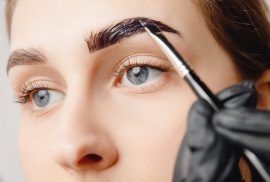Beauty Myths That Lead You Astray
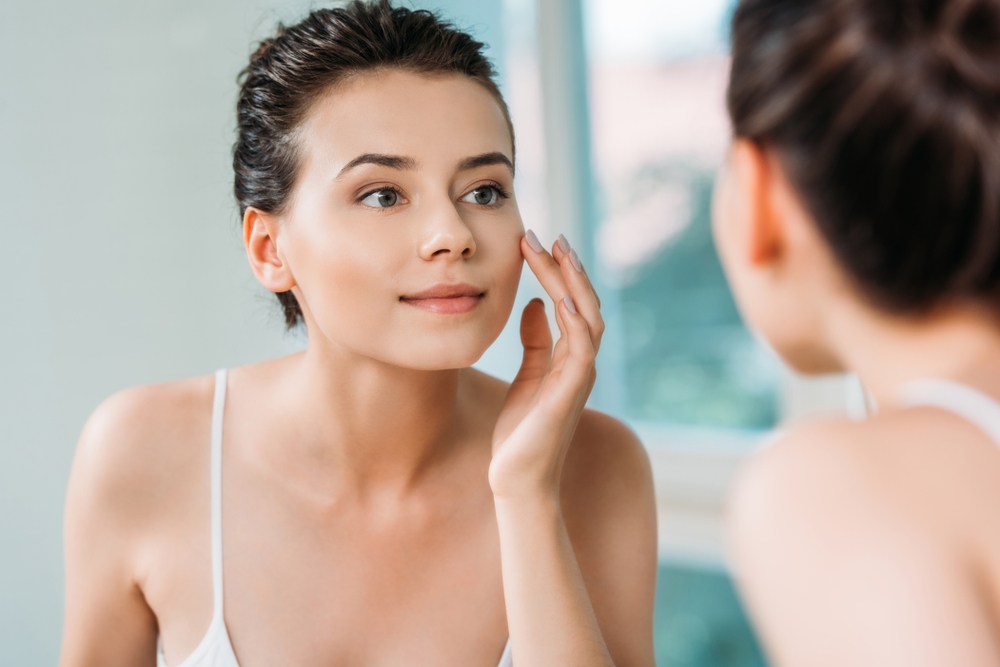
Each one of us has some kind of beauty goal we aspire to.
Whether that’s clean, acne-free skin, glowing complexion, or heathy and luxurious hair, we are well aware that, in most cases, these beauty ideals won’t happen on their own.
And in our efforts to achieve those aesthetic goals, we start to seek advice from friends, magazines, or online spaces, thinking that better knowledge about beauty will help us achieve the desired look faster.
And yet, sometimes even the most well-known beauty mantras can turn out to be a bust.
What’s more, in the over-saturated sea of information, it is getting harder and harder to distinguish science-backed advice from old wives’ tales, especially when ill-informed beauty practices are still being widely promoted among influential publications, platforms, and cosmetics connoisseurs.
So, how to find out which of the age-old beauty myths simply don’t work?
Worry not, because we have prepared a round-up of some of the most widely perpetuated beauty baloney.
Keep reading to discover whether you’re guilty of following these flawed beauty tips, but also to find out what you should do instead to get the best possible results for your skin and hair.
Make-up Wipes Are The Only Cleansing Product You Need
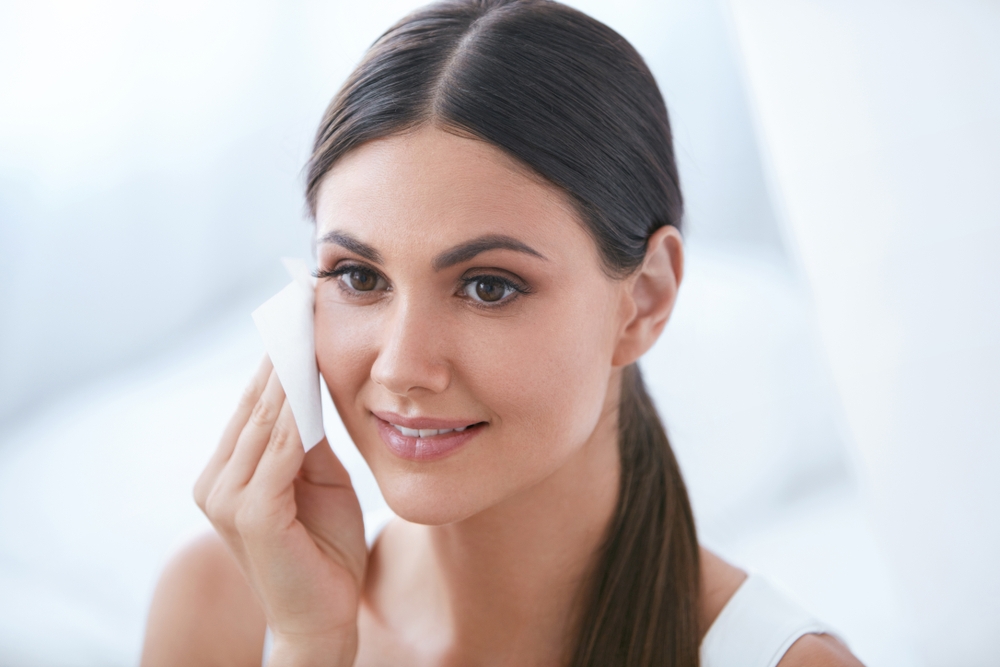
To put it bluntly: no, they are not.
We know, we know – but they are so practical, right?
They fit into any bag, require precisely zero sinks or taps, you can just whip one out and – bam – the make-up is gone in an instant.
And yet, for all their convenience, make-up wipes can do more harm than good if they aren’t followed up by a proper cleanser.
Why is that?
For one, they are only successful at removing dirt from the surface of your skin, which means all the nasty stuff still remains lodged in your pores, from where it can cause acne and breakouts.
And while this might be enough if you are in a pinch, you shouldn’t mistake facial wipes for the primary form of cleansing.
To avoid nasty side effects caused by using wipes, opt for makeup removers that are potent in removing gunk and dirt, while remaining gentle on the skin.
A mild, all-natural cleanser, such as micellar water, will thoroughly remove all the pollutants from your skin and replenish it with moisture.
Sure, it will take extra 30 seconds, but the end result will definitely be worth it!
Rigorous Physical Exfoliation Is the Best Solution for Promoting New Skin
Remember those harsh, beady face scrubs?
Chances are you have used one, whether it was during your adolescence when you were desperately trying to cure teenage acne, or maybe in an attempt to get rid of the annoying flaky skin that appears like clockwork every winter.
Or maybe you heard how removing dead skin cells is the best way to accelerate the production of new skin, resulting in a bright, glowing complexion. And what better way to annihilate that dull layer of skin than with a good old-fashioned gritty scrub?
Unfortunately, as satisfying as that squeaky-clean feeling after using a face scrub can be, exfoliation methods that are too abrasive can actually wreak havoc on your skin in the long run.
Not to mention the fact that microbeads, which are sometimes found in exfoliating products, tend to be bad for our environment as well.
In order to avoid negative side effects of over-scrubbing, such as inflammation, dryness, and breakouts, try to steer clear of harsh physical exfoliants like beads, grains, and washcloths.
For all the benefits of good exfoliation that won’t rob your skin of its natural moisture, make a move towards products that contain AHAs or BHAs.
They are designed to gradually break down dead cells and unravel the gorgeous, healthy skin hiding underneath.
Sunscreen Should Only Be Used in the Summer

Every one who is acquainted with skincare 101 knows that no amount of fancy products can keep your skin looking balanced and wrinkle-free if you also don’t set all that hard work every day with sunscreen.
And not just any old sunscreen, either – a potent one for anti-aging purposes should have an SPF of at least 30 and be water-resistant, as well.
However, incorporating this essential product into your everyday routine is only the first step in your (anti-aging) journey.
You also have to make sure you apply the product thoroughly, so it forms a solid barrier that will protect your skin cells from harmful UV rays.
This means that applying just a thin layer before moving onto your make-up simply won’t do the trick.
To truly make the most of your sunscreen, but at least a teaspoon amount of product on your face and make sure to reapply often.
Don’t forget the neck and décolletage area!
All-Natural Homemade Remedies Can Only Be Good For Your Skin
Using products straight from nature is an easy way to trick yourself that you’re giving your skin a healthy, risk-free treatment.
However, the number of natural ingredients that are 100% beneficial for the skin in any given scenario is limited.
Unfortunately, that doesn’t prevent beauty blogs and magazines from publishing one too many sketchy DIY recipes that often contain products that should never come into direct contact with your skin in their pure form.
If you’re wondering what those are, here are some of the most common skincare baddies you’ll come across in recipes for homemade mixtures:
- lemon juice
- baking soda
- salt
And whenever you are not sure whether a certain ingredient can go straight from your fridge or pantry and onto your skin, make sure to do a patch test first.
Skin Type Doesn’t Matter All That Much When Choosing a Product
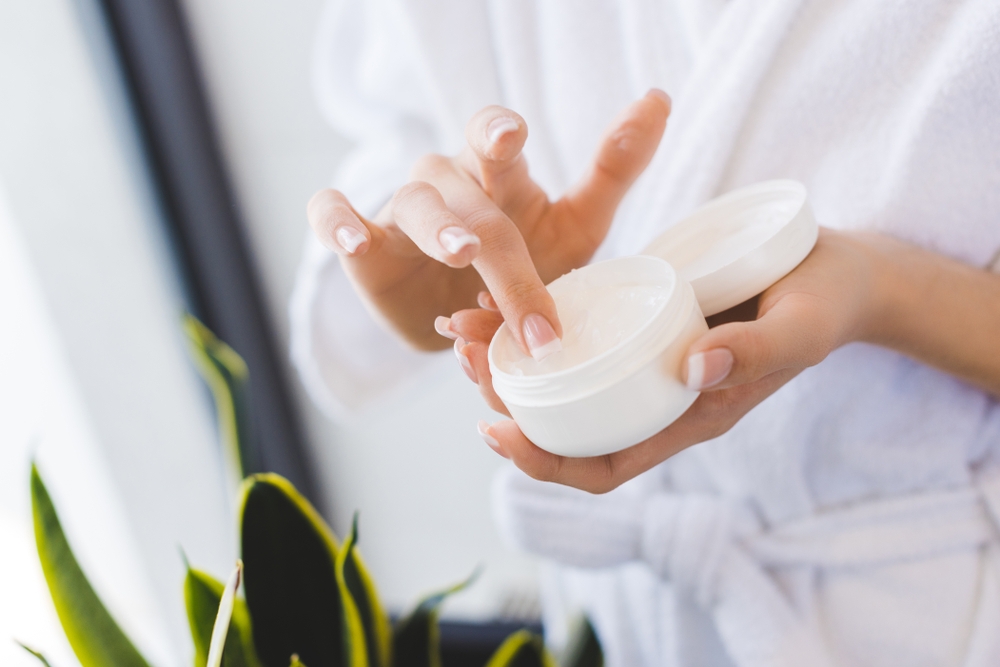
One man’s skincare holy grail is another man’s skincare disaster.
Before you snatch that brand spanking new product everyone is raving about, make sure you know your skin through and through.
Here are some of the questions to ask yourself before you decide on your skin type:
- Does your skin tighten when you cleanse?
- Is it prone to irritation?
- Does your T-zone get oily during the day?
- Do you tend to have dry patches or redness?
The answers to these can help you decide whether you have dry, oily, or combination skin.
And your skin type will be your number one guide in building an effective skincare regimen.
Why do you have to consider all these factors when buying new products?
Because choosing a formula that wasn’t designed for your skin texture can be ineffective or even detrimental to your complexion.
And that is exactly what you want to avoid!
Learn what ingredients agree with your skin and make a habit of reading the labels.
Next time you go to your favorite drugstore, you’ll know exactly what to pick up!
It Is Totally Possible to Shrink Your Pores
All of us who battle oily skin also know how annoying and aesthetically unappealing enlarged pores can be.
What’s more, the beauty industry and blogosphere can get your hopes up by promising that a certain product or cleansing method can reduce the size of your pores.
The most well-known ones include washing your face with icy cold water or applying an egg white mask.
Unfortunately, the size of your pores depends largely on your genetics and skin type, meaning people whose skin is prone to oiliness will probably have pores that are more noticeable.
This is why it’s impossible to physically reduce the size of your pores.
But, before you despair, there is good news: you can still minimize their visibility and contribute to an overall healthier appearance of your skin.
Since the primary function of pores is to release the oils from the body, the best way to maintain their subdued appearance is to keep them clean at all times.
There are several ways you can do this.
The new generation of exfoliants, such as AHAs, BHAs, and retinoids, are extremely effective at thoroughly removing all the dirt, pollutants, and excess sebum from your skin.
When it comes to taking the day off, give an oil-based cleanser a try.
Even though it might feel counter-intuitive to use an oil cleanser when your skin tends to get greasy on its own, these powerful products can be potent in dislodging the dirt that accumulates in your pores, leaving your skin feeling clean and thoroughly hydrated.
If you are worried about makeup emphasizing the size of your pores, make sure to prep your skin with a blurring primer that will provide you with a clean, bump-free canvas for all your favorite base products.
You Should Wash Your Hair Every [Insert Number] Days
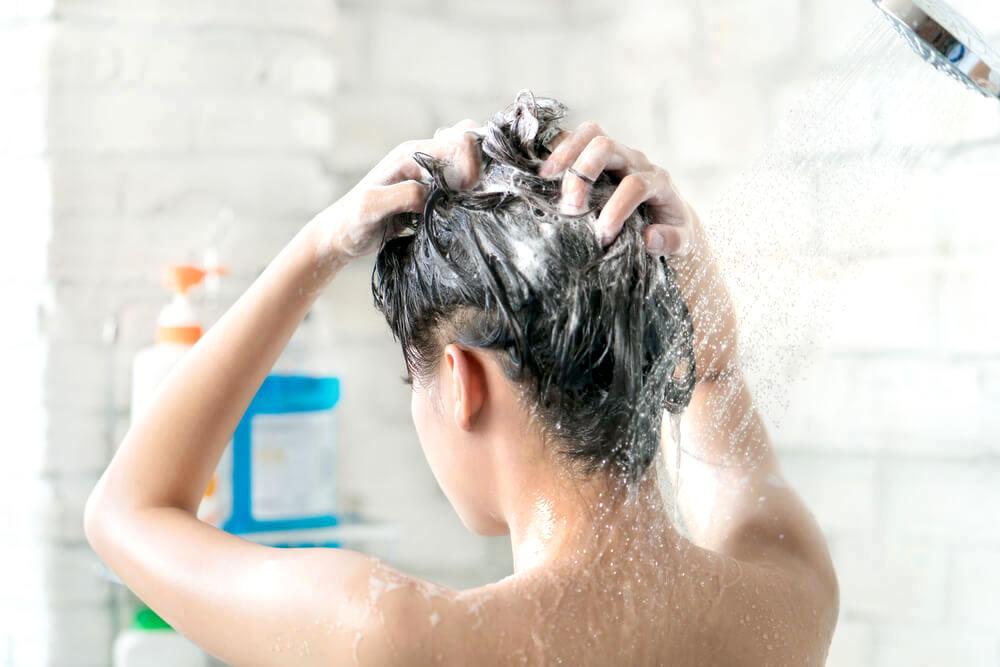
It is possible you have heard all iterations of this age-old hair myth: from washing your hair every day to doing so every other day, to shampooing it weekly. In recent years, you might have even noticed a trend that suggested ditching the shampoo altogether.
So, how often should you wash your hair?
The answer varies.
Before you decide what is the optimal number of days you should reach for the shampoo, you might want to consider your hair type.
For example, people with curlier or thicker hair textures can benefit from going longer periods without washing.
On the other hand, people with thin and very straight strands might find it better to wash their hair every other day, as oils tend to travel faster down pin-straight locks.
One thing you should keep in mind is that over-washing your hair can be detrimental to your locks, as the combination of product and hot water can strip your follicles of their natural oils and contribute to dry scalp and brittle strands.
If you find your roots tend to get greasy on the second day, you might want to invest in a dry shampoo, which is a great solution whenever you want to perk up your mane.
People With Oily Skin Should Never Use Oil-based Products
Let’s face it: a lot of us are still a little bit hesitant when it comes to products labeled with the word “oil”.
And that is completely understandable – most of us have heard the old adage how you should steer clear of oils if you have greasy skin.
What’s more, your own logical thinking might lead you to conclude that your skin definitely does not need any extra oils if your glands are already producing more than enough on their own.
Well, this is where you might be wrong.
If you’re someone with oily skin who enjoys that super-clean feeling after a deep cleanses or a thorough exfoliation, you should always make sure to replenish your skin moisture levels afterward, no matter how much you feel like your skin doesn’t really need them.
When you fail to do this, your skin cells detect the lack of hydration, which sends your glands into over-production of sebum, making your skin even greasier than normal.
Believe it or not, oil-based products can be a great way to counterbalance the excess production of natural oils.
They restore the moisture levels in your cells and leave your skin looking smooth and supple, without being too shiny.
Moreover, oils can be an amazing addition to your skincare routine and can help with various skin issues.
For example, if your complexion tends to be on the dull side or your skin needs a little more TLC in the frigid winter months, you can treat it to argan oil. This non-comedogenic skin booster will plump up your cells, reduce the appearance of pores and give your complexion that coveted glow.
On the other hand, if you suffer from redness and irritation, apply a couple of drops of tea tree oil to the affected areas. This soothing, anti-bacterial ingredient will calm down your skin and keep the pollutants at bay.
Hopefully, this guide has helped you distinguish between valuable beauty advice and good-for-nothing tips that are little more than bad science. Armed with this new knowledge, we are confident that you will be able to decide what is the most effective care for your skin and hair.



